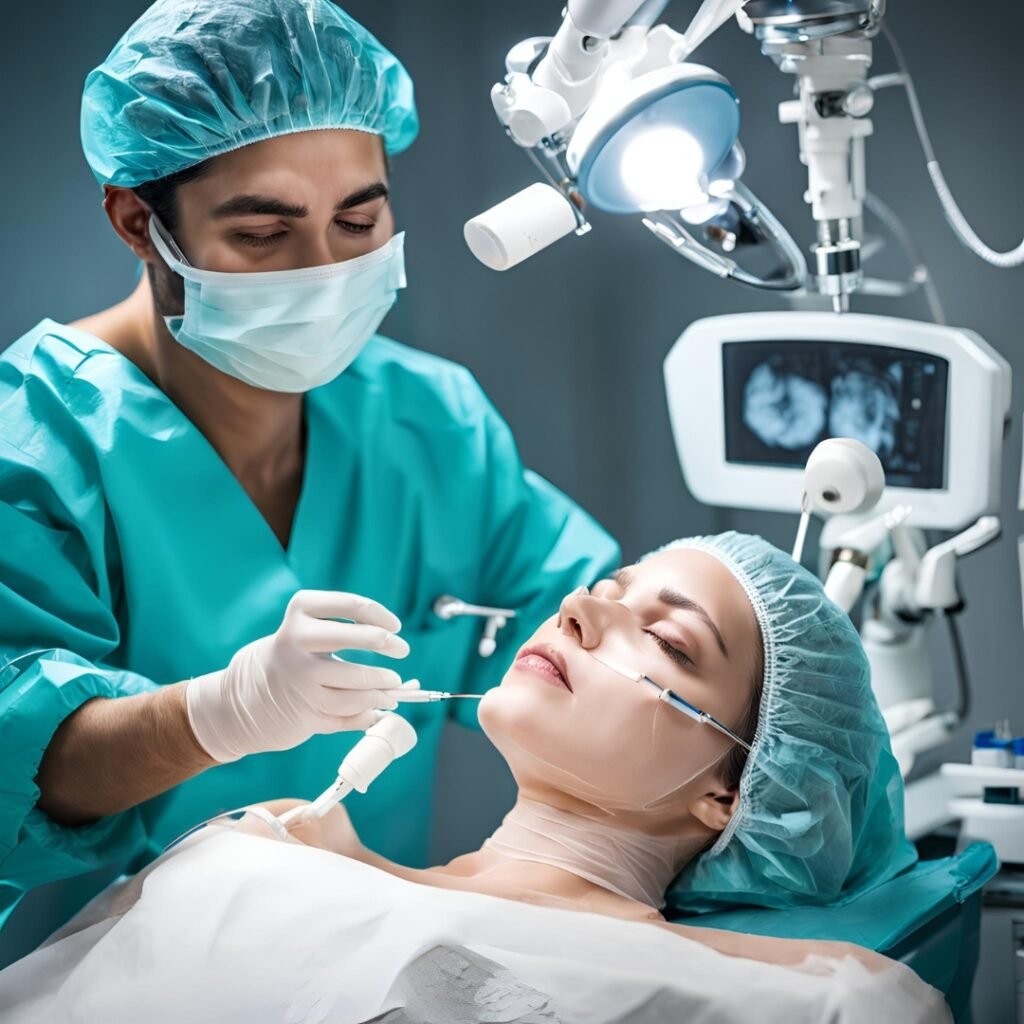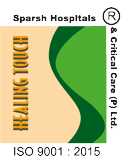Why Sparsh Hospital is your best choice for Gastroenterology?

Sparsh Hospitals stands as the premier destination for Gastroenterology services, offering a comprehensive range of advanced treatments and personalized care. With a focus on cutting-edge technology and a team of highly skilled gastroenterologists, we provide patients with the assurance of safe and effective procedures. Our doctors, equipped with international certifications and vast experience, bring expertise in managing a spectrum of gastrointestinal conditions, from common digestive disorders to complex diseases. At Sparsh, we prioritize patient well-being, tailoring treatment plans to suit individual needs and ensuring comfort throughout the healing process. Our patient-centric approach extends to every aspect of care, from diagnosis to post-treatment support, fostering trust and confidence in our services. With a commitment to delivering exceptional results and improving quality of life, Sparsh Hospitals is the trusted choice for those seeking excellence in Gastroenterology care.
Understanding Gastroenterology
Gastroenterology is a medical specialty focused on the diagnosis and treatment of disorders related to the digestive system. This field encompasses a wide range of conditions affecting the esophagus, stomach, intestines, liver, gallbladder, and pancreas.

What are the Signs and Symptoms of Digestive Disorders?
Signs and symptoms that may indicate the need for gastroenterological evaluation include:
- Abdominal pain or discomfort
- Changes in bowel habits (diarrhea, constipation)
- Heartburn or acid reflux
- Difficulty swallowing
- Persistent nausea or vomiting
- Bloating or gas
- Blood in stool or vomit
- Unexplained weight loss
Causes of Digestive Disorders
Several diagnostic tests are used to evaluate digestive disorders:
- Endoscopy: Using a flexible tube with a camera to visualize the digestive tract.
- Colonoscopy: Examining the colon and rectum for abnormalities.
- Imaging Tests: X-rays, CT scans, MRI scans to assess the structure and function of organs.
- Blood Tests: Checking for signs of inflammation, infection, or liver function abnormalities.
- Stool Tests: Detecting blood, infections, or abnormal levels of enzymes.
- Biopsy: Removing a small tissue sample for laboratory analysis.
Common Medical Tests to Diagnose Digestive Disorders
Several diagnostic tests are used to evaluate digestive disorders:
- Endoscopy: Using a flexible tube with a camera to visualize the digestive tract.
- Colonoscopy: Examining the colon and rectum for abnormalities.
- Imaging Tests: X-rays, CT scans, MRI scans to assess the structure and function of organs.
- Blood Tests: Checking for signs of inflammation, infection, or liver function abnormalities.
- Stool Tests: Detecting blood, infections, or abnormal levels of enzymes.
- Biopsy: Removing a small tissue sample for laboratory analysis.
How to Prevent Digestive Disorders
While not all digestive disorders can be prevented, certain measures can reduce the risk:
- Healthy Diet: Consuming a balanced diet rich in fiber, fruits, and vegetables.
- Hydration: Drinking an adequate amount of water to maintain digestive health.
- Regular Exercise: Promoting healthy digestion and maintaining a healthy weight.
- Limiting Alcohol and Caffeine: Excessive consumption can irritate the digestive system.
- Smoking Cessation: Quitting smoking to reduce the risk of gastrointestinal cancers and other disorders.
- Stress Management: Practicing stress-reducing techniques such as meditation or yoga.
- Medication Safety: Using medications as directed and avoiding unnecessary use of antibiotics or NSAIDs.
What Are the Common Procedures Performed by a Gastroenterologist?
Gastroenterologists perform various procedures to diagnose and treat digestive disorders, including:
- Colonoscopy: Examining the colon and rectum for abnormalities and removing polyps.
- Upper Endoscopy (EGD): Visualizing the esophagus, stomach, and duodenum for ulcers, inflammation, or tumors.
- Endoscopic Retrograde Cholangiopancreatography (ERCP): Diagnosing and treating disorders of the bile ducts and pancreas.
- Endoscopic Ultrasound (EUS): Evaluating digestive tract disorders and assessing nearby organs for abnormalities.
- Capsule Endoscopy: Swallowing a pill-sized camera to visualize the small intestine for abnormalities.
- Liver Biopsy: Removing a small tissue sample from the liver for analysis.
- Esophageal Manometry: Assessing the function of the esophagus and lower esophageal sphincter.

Why Should I See a Gastroenterologist?
Seeing a gastroenterologist is important for several reasons:
- Specialized Expertise: Gastroenterologists have extensive training and experience in diagnosing and treating digestive disorders.
- Comprehensive Care: They provide a comprehensive approach to managing gastrointestinal conditions, including medical management, endoscopic procedures, and surgery when necessary.
- Early Detection and Treatment: Early intervention can prevent complications and improve outcomes for many digestive disorders.
- Advanced Technology: Gastroenterologists have access to the latest diagnostic and therapeutic technologies for optimal patient care.
- Personalized Treatment Plans: Tailored treatment plans to address each patient’s unique needs and goals.
Consulting with a gastroenterologist can help you address digestive issues effectively and improve your overall digestive health and quality of life.

